Let’s be honest, the main reason people come to Cambodia is to see Angkor Wat. And while it is the largest religious monument in the world, it wasn’t my reason for going to Cambodia. I wanted to come to Cambodia to learn about the recent genocide that the country has overcome and is still recovering from.
S-21 and The Killing Fields are reminders of the radical views of the former leader, Pol Pot. He created the Khmer Rouge Regime and was in power between 1975-1979. Roughly 25% of the Cambodian population died while Pol Pot was in power which is about 2 million people.
The Khmer Rouge Regime
The Khmer Rouge Regime rose to power in 1975. They wanted to create a society that was self-sufficient and didn’t rely on technology or money. To start, they forced people out of their homes in the city and into the rural countryside. As you can imagine, this resulted in much starvation, disease, and death. Anyone that was educated or posed a threat to their utopian society was tortured and killed.
S-21
S-21 is a former high school that was turned into a prison by the Khmer Regime. It is located right in the city of Phnom Penh. This prison was only one in an extensive network of torture and extermination facilities used all across the country. About 20,000 people were imprisoned here, but only 12 survived.
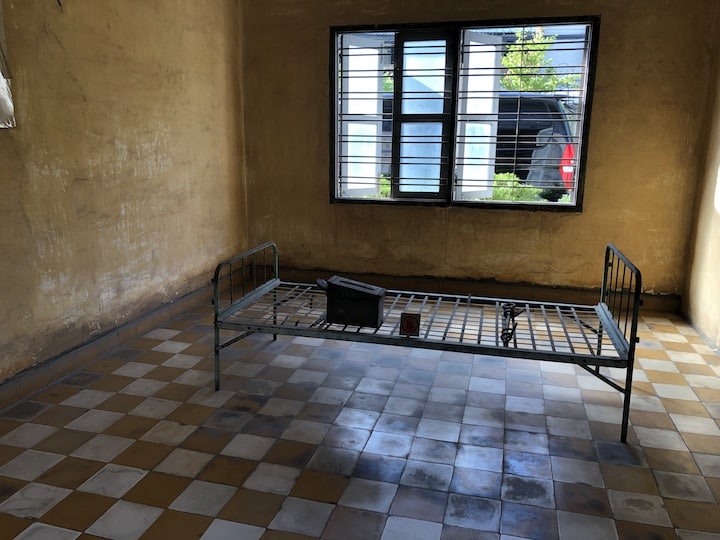
Tour S-21
Guided tours or audio guides are available at the entrance. The audio guide is $8 USD and will take about 2.5 hours to listen to the entire taping. I definitely recommend getting the guide as there are stories from survivors and detailed explanations about what happened in each of the buildings.

The mood in the museum is very dark and grim. I found it hard to imagine what happened there. It didn’t seem real to me even though I was standing in the same room. There are black and white portrait photos that show all the prisoners that came through the doors. You’ll be able to see interrogation rooms, torture rooms and devices, as well as drawings and paintings of what happened. Unfortunately, they can be quite difficult to look at.

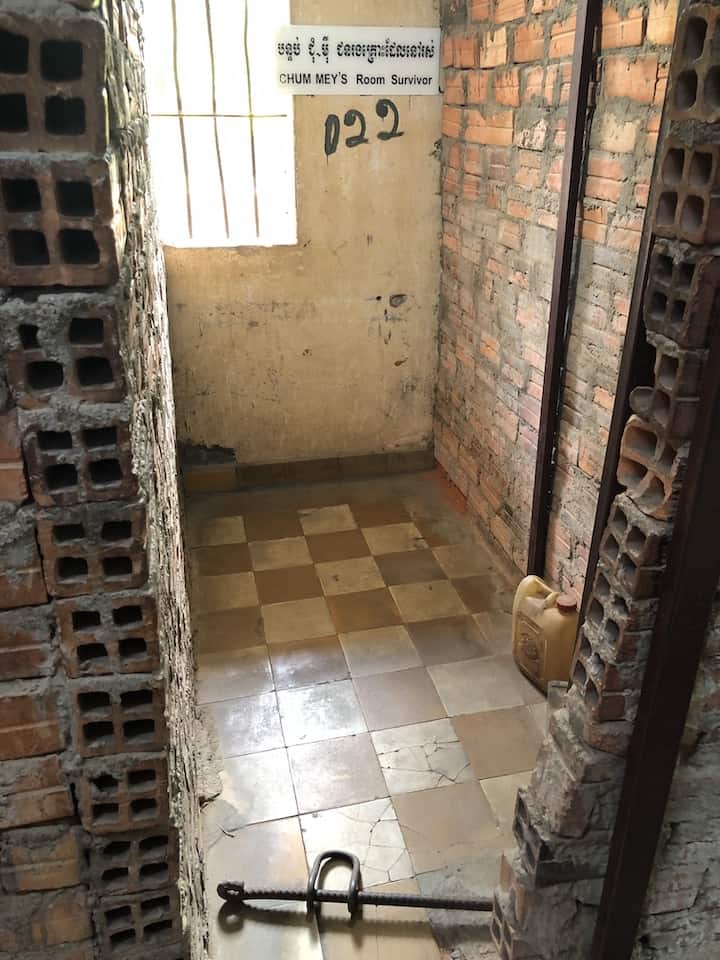
The Killing Fields
Next, are the Killing Fields located a little outside the city of Phnom Penh. This is where prisoners were executed. Coming in by truckload in the evening, they were killed by clubs, sticks, or knives. Afterward, they were buried in mass graves within the field.
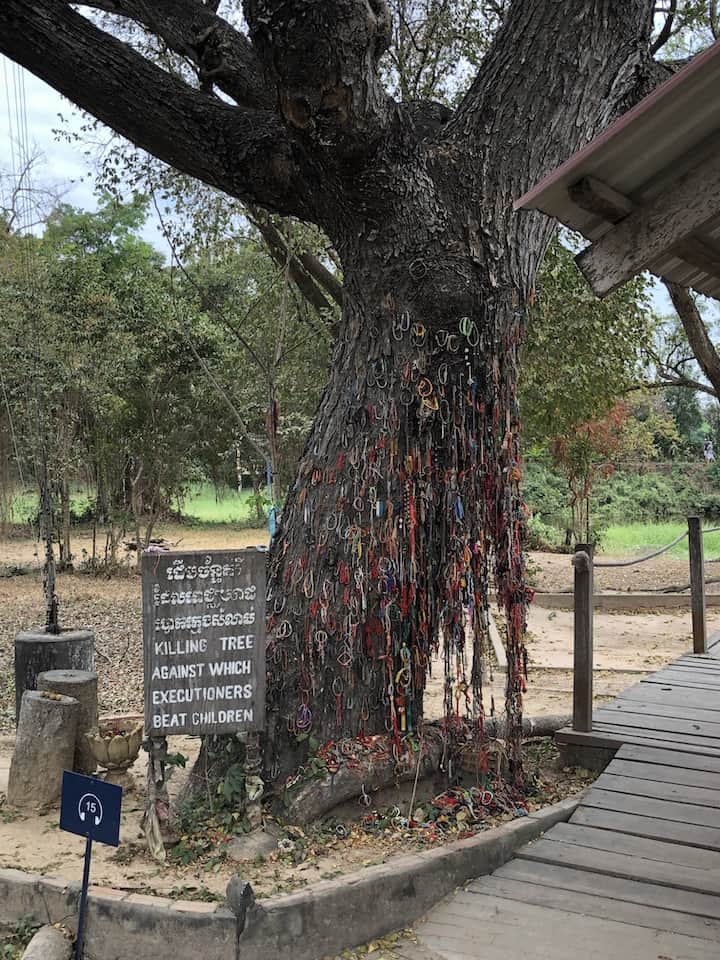
The most recognized location within the area is the Killing Tree which was used to beat children to death. The bodies were then buried in a grave next to the tree. Many offerings of colorful bracelets line the fence of the grave as well as hung from the tree itself.
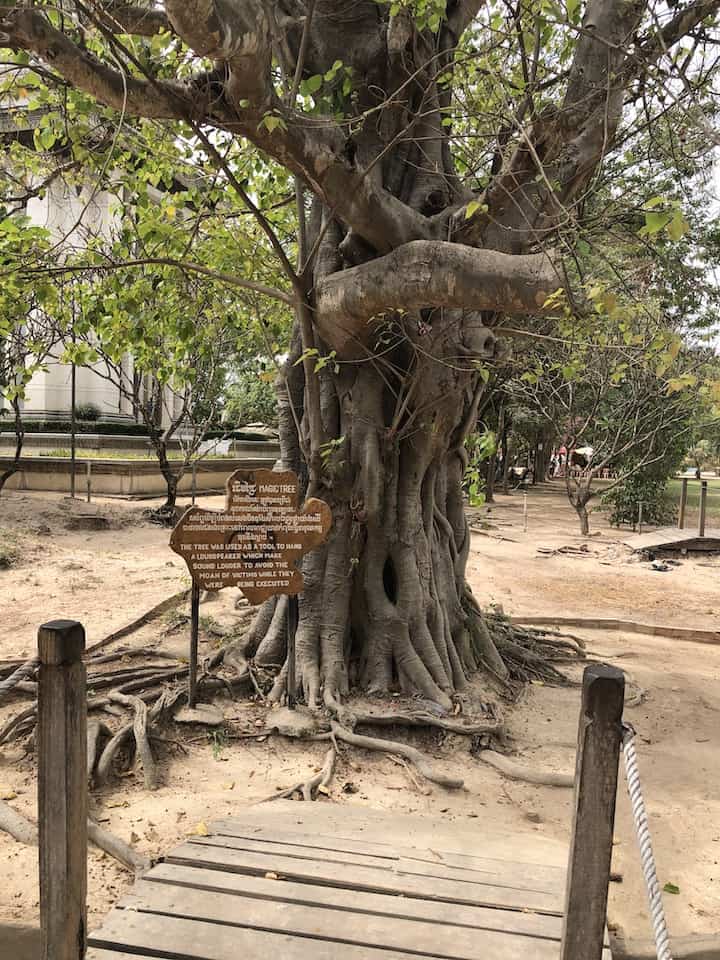
Tour The Killing Fields
The ticket price to visit the Killing Fields is $6 USD and includes an audio guide. On the audio guide, there are many stories from different people about what they saw and experienced here. These stories can be very emotional to listen to as you walk around the grounds.
The grounds are designed with an elevated walkway with numbered markers that coincide with the audio guide. You will see fabrics and fragments of plates and bowls still buried in the earth that belonged to people.
Why You Should Visit
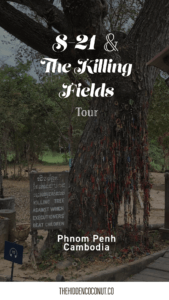
I know that this might not be on the list of things to see for some travelers, but I think that it’s important in understanding the country today. The average age of the population in Cambodia is only 24 years old. This means that many families started having children in the 1990s. The genocide may have destroyed or separated entire families, making the new generation offspring from survivors.
Many of the Cambodian people want you to know about their history. It is not something that is hidden away from society never to be discussed.
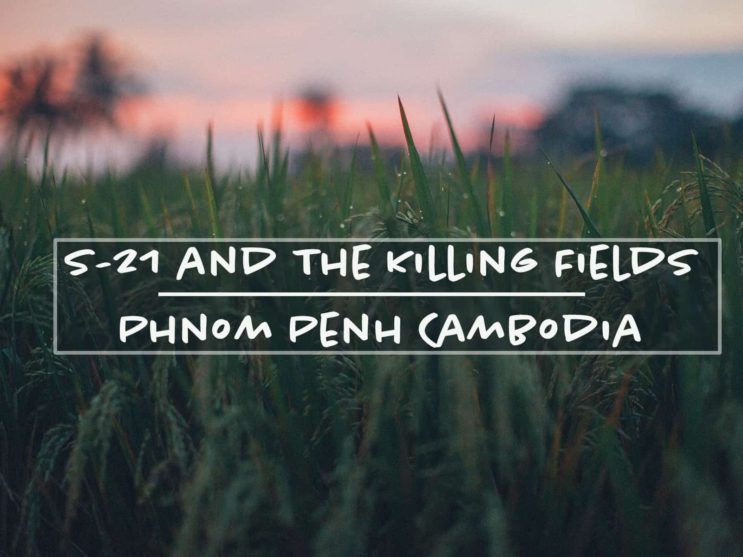
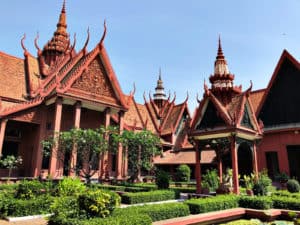
Wow…what a powerful and emotional post. It’s a difficult subject but so important to share. I know someone whose father and brother died in the Killing Fields. Such a horrific tragedy.